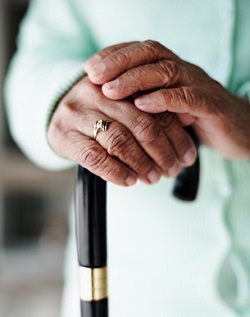Our Boston SSDI lawyers know that the task of applying for benefits can really seem like an uphill battle to an unrepresented claimant.
 In Murphy v. Colvin, an appeal filed in the U.S. Court of Appeals for the Seventh Circuit, the claimant was admitted to the hospital after having a stroke. The examining physicians noted a past history of headaches and issues with her speech. The doctor noted that, while the claimant could read a basic sentence, she would sometimes substitute random words.
In Murphy v. Colvin, an appeal filed in the U.S. Court of Appeals for the Seventh Circuit, the claimant was admitted to the hospital after having a stroke. The examining physicians noted a past history of headaches and issues with her speech. The doctor noted that, while the claimant could read a basic sentence, she would sometimes substitute random words.
The doctor also diagnosed the claimant with a degree of weakness on her right side and a neurological condition which affected sensation and caused her to be unaware of the location of her own hand without looking at it. The doctor recommended physical therapy.
The claimant began to see a therapist, based upon the doctor’s recommendation, but only went a couple of times before being removed from the program for poor attendance. At a follow-up visit, the claimant complained of dizziness and headaches and an eye problem. Eventually, only the headaches remained. Her speech eventually returned to what doctors called “almost normal,” though the neurological condition affecting awareness of her hand’s location persisted.
The claimant filed for disability benefits with the Social Security Administration (SSA), but the SAA denied her claim for benefits. She appealed this denial and had a hearing before an Administrative Law Judge (ALJ). At the hearing, the ALJ heard testimony from the Vocational Expert hired by the SSA, the claimant, and her husband. The ALJ ruled that she was not disabled because she could do sedentary work and that her condition was not as bad as she was claiming. He based this on the fact that a medical record indicated the plaintiff had gone on vacation a few months after the stroke, and if she was healthy enough to go on vacation, she was healthy enough to work.
The claimants appealed this ruling by the ALJ. On appeal, the court reversed the ALJ holding because his ruling was not based upon evidence that supported any of the findings. With respect to vacation, the court said that it might take that into account if the claimant was white water rafting or engaging on some other type of active outdoor type of vacation. As it turns out, she went with her family to Mexico, where she spent most, if not all, of her vacation lying on the beach in the sun.
One thing that you can do to help increase the chances of recovering SSDI benefits is to speak with an attorney as early in the process as possible. It is much easier for your attorney to help if they can get things on the right track from the beginning rather than running around late in the case trying to put out fires.
If you or a loved one is seeking Social Security Disability Insurance in Boston, call for a free and confidential appointment at (617) 777-7777.
Additional Resources:
Murphy v. Colvin, July 22, 2014, U.S. Court of Appeals for the Seventh Circuit
More Blog Entries:
Young People with Disabilities Face Challenges Preparing for Work, July 14, 2014, Boston Social Security Disability Insurance Lawyers Blog
 Massachusetts Social Security Disability Lawyers Blog
Massachusetts Social Security Disability Lawyers Blog

